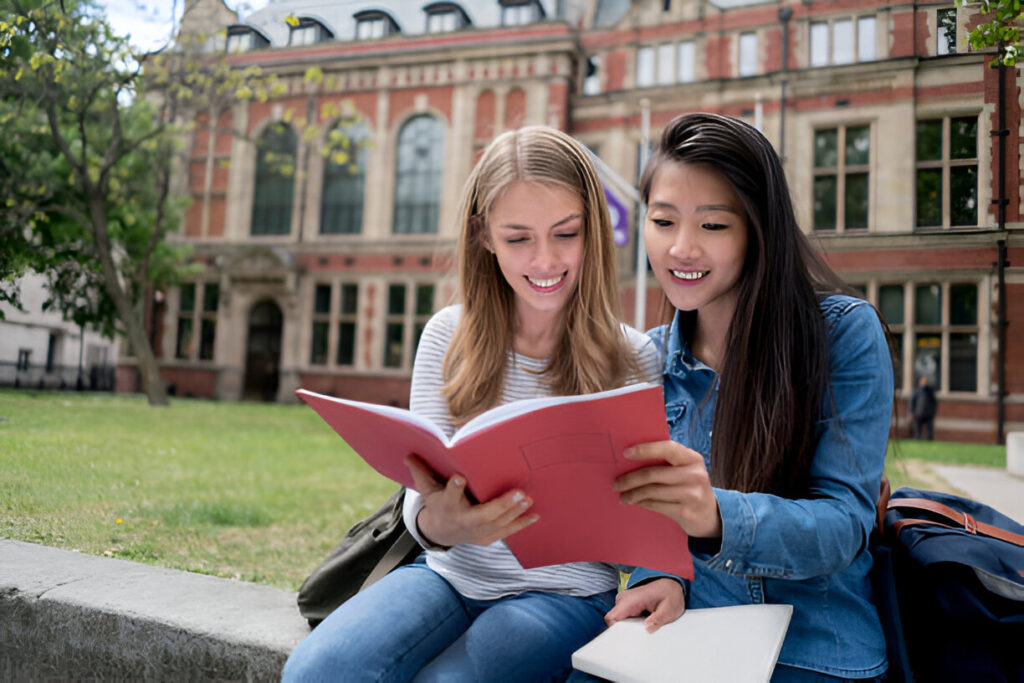Studying abroad is a dream for many students, offering the opportunity to gain a world-class education, experience new cultures, and build a global network. However, one of the most critical steps in turning this dream into reality is navigating the visa process. Visa requirements can be complex and vary significantly depending on the destination country, the type of study program, and the student’s nationality. This comprehensive guide will help international students understand visa requirements, the application process, and how to successfully obtain a student visa.

1. What Is a Student Visa?
A student visa is an official document that allows foreign nationals to enter and study in a particular country for a specified period. It is typically granted by the host country’s embassy or consulate in the student’s home country. The visa outlines the terms and conditions under which the student can reside and study in the host country, including the duration of stay, the type of educational institution, and the course of study.
1.1 Types of Student Visas
There are various types of student visas, and the specific type you need will depend on the country and the nature of your study program. Some common types include:
- Short-Term Study Visa: For students enrolled in short courses, language schools, or summer programs, typically lasting less than six months.
- Long-Term Study Visa: For students pursuing a degree or long-term course, such as a bachelor’s, master’s, or PhD program.
- Exchange Program Visa: For students participating in exchange programs between universities or schools, usually for one or two semesters.
- Vocational Training Visa: For students attending vocational schools or technical institutes.
Each visa type has specific requirements, and it’s crucial to understand which one applies to your situation before starting the application process.
2. Key Factors to Consider When Applying for a Student Visa
The student visa application process can be daunting, with various requirements and deadlines to meet. Here are some key factors to consider:
2.1 Country-Specific Requirements
Visa requirements vary widely from country to country. While some countries have straightforward processes, others may require additional documentation, interviews, or proof of language proficiency.
- United States (F-1 Visa): Requires acceptance from a SEVP-approved school, financial proof, and an interview at the U.S. embassy or consulate.
- United Kingdom (Tier 4 Visa): Requires a Confirmation of Acceptance for Studies (CAS) from a UK institution, proof of English proficiency, and financial evidence.
- Australia (Subclass 500 Visa): Requires enrollment in a course registered under the Commonwealth Register of Institutions and Courses for Overseas Students (CRICOS), proof of financial capacity, and health insurance.
- Canada (Study Permit): Requires a Letter of Acceptance from a Designated Learning Institution (DLI), proof of financial support, and a medical exam in some cases.
2.2 Proof of Enrollment
One of the primary requirements for a student visa is proof of enrollment in an educational institution in the host country. This is typically in the form of an acceptance letter or Confirmation of Enrollment from the institution.
- What to Include: The document should include your name, the course name, the start and end dates, and the institution’s official letterhead or seal.
2.3 Financial Evidence
Most countries require proof that you have sufficient funds to cover your tuition fees, living expenses, and other costs during your stay. This may include:
- Bank Statements: Showing enough funds in your account or your sponsor’s account.
- Scholarship Letters: Confirming the amount awarded and the expenses it covers.
- Sponsorship Letters: If a family member or third party is sponsoring your studies, you may need a formal letter from them.
2.4 Language Proficiency
Depending on the country and the course, you may need to demonstrate proficiency in the language of instruction. Commonly accepted tests include:
- English: IELTS, TOEFL, or Cambridge English exams.
- French: DELF or DALF for studies in France or French-speaking regions of Canada.
- German: TestDaF or DSH for studies in Germany.
Some countries require a minimum score on these tests as part of the visa application process.
2.5 Health and Travel Insurance
In many countries, having health insurance is a mandatory requirement for obtaining a student visa. You may need to show proof of coverage for the entire duration of your stay.
- Australia: Requires Overseas Student Health Cover (OSHC).
- Germany: Requires health insurance coverage, either through a German public insurance provider or a recognized private insurance plan.
- Canada: Some provinces require international students to enroll in their provincial health insurance plans, while others may require private insurance.
Additionally, some countries require proof of travel insurance that covers repatriation and emergency medical expenses.
2.6 Background Checks and Medical Examinations
Certain countries require background checks and medical examinations as part of the visa application process.
- Criminal Background Check: Some countries require a police clearance certificate to ensure that the applicant has no criminal record.
- Medical Examination: Countries like Australia, Canada, and New Zealand may require a medical exam to ensure the applicant meets health standards. This might include tests for tuberculosis, HIV, and other communicable diseases.
It’s essential to complete these checks and exams well in advance, as they can take time to process.
3. The Student Visa Application Process
The application process for a student visa varies depending on the country, but generally follows these steps:
3.1 Research and Prepare
Start by researching the visa requirements for your destination country. This includes understanding the documents you’ll need, the application process, and any specific deadlines.
- Check the Embassy Website: Most embassies or consulates have detailed information about visa requirements and the application process on their websites.
- Gather Documents: Collect all required documents, including your passport, acceptance letter, financial evidence, language test scores, and any additional forms specific to your country.
- Plan Ahead: Visa processing times can vary, so it’s important to start the application process as early as possible, typically three to six months before your course start date.
3.2 Submit Your Application
Once you have gathered all the necessary documents, you can submit your visa application. This may be done online or in person at the embassy or consulate.
- Online Submission: Some countries allow you to apply for a student visa online. Ensure you upload all required documents in the correct format.
- In-Person Submission: If required, schedule an appointment at the nearest embassy or consulate. Bring all original documents and any additional copies.
3.3 Attend an Interview (If required)
Some countries require a visa interview as part of the application process. This is an opportunity for the visa officer to verify the authenticity of your application and assess your intentions for studying abroad.
- Prepare for Common Questions: You may be asked about your study plans, why you chose your particular course and university, your financial situation, and your plans after graduation.
- Dress Appropriately: Treat the interview as a formal occasion, and dress accordingly.
- Be Honest and Confident: Answer all questions truthfully and confidently. If you don’t know the answer to a question, it’s better to admit it than to guess.
3.4 Pay the Visa Fee
Most visa applications require a fee, which varies depending on the country and the type of visa. Payment methods may include credit card, bank transfer, or a cashier’s check.
- Non-Refundable: Keep in mind that visa fees are typically non-refundable, even if your application is denied.
- Receipt: Always keep the receipt as proof of payment, as you may need to show it during your application process.
3.5 Wait for Processing
After submitting your application, the waiting period begins. Processing times can vary from a few weeks to several months, depending on the country and the time of year.
- Track Your Application: Some embassies or consulates offer online tracking services, allowing you to monitor the status of your application.
- Prepare for Delays: It’s not uncommon for visa processing to take longer than expected, especially during peak application periods. Plan accordingly and avoid making any non-refundable travel arrangements until your visa is approved.
3.6 Receive Your Visa
If your application is successful, you will receive your student visa, either as a stamp or sticker in your passport or as a separate document.
- Check the Details: Ensure that all the details on your visa are correct, including your name, date of birth, course details, and the visa’s validity period.
- Understand the Conditions: Be aware of any conditions attached to your visa, such as work restrictions, reporting requirements, or mandatory health insurance.
4. Common Challenges and How to Overcome Them
The student visa application process can be challenging, with several potential obstacles along the way. Here’s how to navigate some common challenges:
4.1 Incomplete or Incorrect Documentation
One of the most common reasons for visa denials is incomplete or incorrect documentation.
- Solution: Double-check the visa requirements and ensure that all your documents are complete and accurate. If possible, have someone review your application before submission.
4.2 Financial Insufficiency
Visa applications may be denied if the applicant cannot demonstrate sufficient funds to cover their studies and living expenses.
- Solution: Provide clear and comprehensive financial evidence. If necessary, consider securing a scholarship, financial aid, or a sponsor to bolster your application.
4.3 Language Barriers
Language barriers can pose significant challenges during the visa application process, including language proficiency tests and communication during interviews.
- Solution: Prepare thoroughly for language tests like the IELTS, TOEFL, or other required exams by practicing regularly and seeking assistance from language tutors or online resources. For interviews, practice common questions and consider role-playing with a friend or advisor to build confidence. If needed, use translation services or seek help from language support centers.
4.4 Long Processing Times
Visa processing times can vary and sometimes extend beyond expected timelines, causing delays in travel plans.
- Solution: Apply for your visa as early as possible to account for any potential delays. Regularly check the status of your application through the embassy or consulate’s tracking system, if available. If you encounter significant delays, contact the embassy or consulate to inquire about the status and possible solutions.
4.5 Understanding and Meeting Specific Requirements
Each country has unique visa requirements, which can be confusing and challenging to meet.
- Solution: Carefully review the specific visa requirements for your destination country and ensure you gather all necessary documents. Consult the embassy or consulate’s website for detailed information and consider reaching out to the university’s international student office or a visa consultant for additional guidance.
5. Tips for a Smooth Visa Application Experience
To ensure a smooth and successful visa application process, consider these helpful tips:
5.1 Start Early
Begin your visa application process as soon as you receive your acceptance letter. This early start allows you ample time to gather documents, complete forms, and address any issues that may arise.
- Plan Ahead: Begin gathering required documents and preparing for the application process several months in advance to avoid last-minute stress.
5.2 Follow Instructions Carefully
Adhere closely to all instructions provided by the embassy or consulate. Meeting all requirements and deadlines is crucial to avoid delays or rejections.
- Double-Check Requirements: Review the application guidelines carefully and ensure that all forms are filled out correctly and all required documents are included.
5.3 Seek Professional Advice
If the visa process feels overwhelming, consider consulting a visa advisor or consultant who specializes in student visas. They can offer valuable advice and help you navigate the complexities of the application.
- Expert Help: A professional can assist with document preparation, understanding visa regulations, and addressing any issues that arise during the application process.
5.4 Keep Copies of Everything
Make copies of all documents submitted with your visa application and store them in a safe place. This can be helpful if you need to reference them later or if any issues arise.
- Document Organization: Maintain organized records of your application materials and any correspondence with the embassy or consulate.
5.5 Stay Informed
Stay updated on any changes in visa policies or requirements for your destination country. Regularly check the embassy or consulate’s website for updates.
- Regular Checks: Monitor the embassy’s website and any relevant news to stay informed about potential changes that could impact your visa status.
6. Post-Visa Approval: What to Do Next
Once you receive your student visa, there are several important steps to take before you depart for your study destination. Ensuring you are fully prepared can help you transition smoothly into your new environment.
6.1 Review Your Visa Conditions
Carefully read the conditions attached to your student visa. Understanding these conditions is crucial for complying with local regulations and avoiding any issues during your stay.
- Study Limits: Some visas may restrict the number of hours you can work while studying or the type of work you are allowed to do.
- Reporting Requirements: You may need to report your arrival to the local immigration authorities or to your educational institution.
- Health Insurance: Ensure you meet the visa’s health insurance requirements, if applicable.
6.2 Arrange Accommodation
Secure your housing arrangements before arriving at your study destination. Depending on your preference and budget, you may choose between university dormitories, private apartments, or shared housing.
- University Housing: Many universities offer on-campus accommodation for international students. Check availability and application deadlines.
- Private Accommodation: If opting for private housing, consider factors like proximity to campus, safety, and local amenities. Websites and local real estate agents can be helpful in finding suitable options.
6.3 Prepare for Travel
Plan your travel arrangements, including booking flights, arranging airport transfers, and preparing any necessary documents for your journey.
- Flight Booking: Book your flight well in advance to get the best rates and availability. Ensure you arrive with enough time to settle in before your classes start.
- Airport Transfers: Check if your university offers airport pickup services or arrange for transportation to your accommodation.
6.4 Pack Wisely
Create a packing list based on the climate of your study destination and the essentials you will need. Remember that you can purchase some items locally, so avoid overpacking.
- Essential Documents: Pack important documents such as your passport, visa, acceptance letter, and financial proof in your carry-on bag.
- Personal Items: Include clothing suitable for the local weather, personal hygiene products, and any items that will make you feel at home.
6.5 Health and Safety Preparations
Ensure you are up to date with any health requirements or vaccinations needed for your destination country. Carry a copy of your medical records and any prescription medications.
- Vaccinations: Some countries require specific vaccinations or health checks before entry.
- Medical Records: Bring a copy of your medical history and any essential prescriptions. It may be helpful to have these documents translated into the local language.
7. Arriving in Your Host Country
Your arrival in a new country is an exciting but challenging time. Here are some steps to help you settle in smoothly:
7.1 Register with Local Authorities
In some countries, you may need to register with local immigration authorities or obtain a residence permit within a certain period of arriving.
- Local Registration: Check if registration is required and follow the procedures to avoid any legal issues.
- Residence Permit: Some countries issue residence permits for long-term stays, which may need to be applied for separately from your student visa.
7.2 Familiarize Yourself with the Area
Explore your new surroundings and familiarize yourself with local transportation, services, and amenities.
- Campus Orientation: Attend any orientation programs offered by your university to get to know the campus and meet fellow students.
- Local Amenities: Locate essential services such as grocery stores, banks, and medical facilities.
7.3 Open a Bank Account
Opening a local bank account can help you manage your finances more efficiently while studying abroad.
- Banking Options: Research banks that offer accounts for international students and compare fees and services.
- Required Documents: You may need to provide your visa, passport, proof of address, and acceptance letter.
7.4 Join Student Communities
Engage with student groups and communities to build connections and ease your transition.
- Student Clubs: Join clubs, organizations, or societies related to your interests or field of study.
- Social Events: Participate in social events and activities to meet new people and integrate into the local culture.
8. Maintaining Compliance and Staying Informed
To ensure your stay remains trouble-free, it’s essential to stay informed and comply with all visa requirements throughout your time abroad.
8.1 Maintain Full-Time Enrollment
Most student visas require you to be enrolled as a full-time student. Ensure you meet the enrollment requirements set by your institution and the visa regulations.
- Course Load: Keep track of your course load and ensure it meets the full-time criteria as defined by your visa conditions.
- Academic Performance: Maintain good academic standing to avoid any issues with your visa status.
8.2 Adhere to Work Restrictions
If your visa has work restrictions, make sure you adhere to them. Unauthorized work can lead to visa violations and legal consequences.
- Work Hours: Observe any limits on the number of hours you are allowed to work during the academic term.
- Type of Work: Ensure that any work you undertake is permitted by your visa conditions.
8.3 Report Changes
Report any significant changes to your visa status or personal circumstances to the immigration authorities as required.
- Address Changes: Notify the relevant authorities if you change your address or contact details.
- Status Changes: Inform them of any changes in your academic status or other relevant updates.
8.4 Stay Updated on Visa Regulations
Visa regulations can change, so it’s important to stay informed about any updates or changes that may affect your status.
- Embassy Notifications: Regularly check the embassy or consulate’s website for any announcements or changes in visa regulations.
- University Advising: Consult with your university’s international student office for advice and updates on visa matters.
9. Renewing Your Student Visa
If your course extends beyond the initial validity of your visa, you may need to apply for a visa renewal or extension. Here’s how to prepare:
9.1 Check Renewal Requirements
Understand the requirements for renewing your student visa well before your current visa expires.
- Application Process: Follow the procedures for applying for a visa extension as outlined by your host country’s immigration authorities.
- Documentation: Gather all necessary documents, including proof of continued enrollment, financial support, and any additional forms required for the extension.
9.2 Apply in Advance
Apply for your visa renewal well before your current visa expires to avoid any lapses in your legal status.
- Processing Time: Be aware of the processing times for visa renewals and submit your application as early as possible.
- Interim Status: Ensure that you have a valid visa or interim status while waiting for your renewal decision.
Navigating the student visa process is a crucial step in your journey to studying abroad. By understanding the requirements, preparing thoroughly, and following the application procedures, you can ensure a smooth and successful visa application experience.
At Mid-West Insurance Agency, LLC, we are here to support you throughout your international study journey. From understanding visa requirements to securing the right health insurance, our team is dedicated to helping you achieve your educational goals without unnecessary stress. For more information and assistance, visit our website at www.mwiallc.com or contact us directly.






